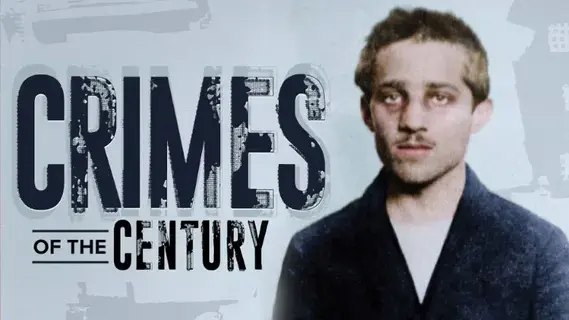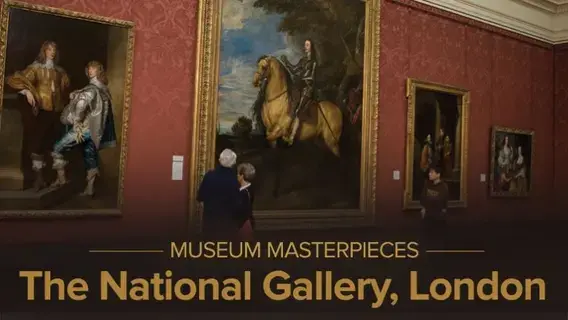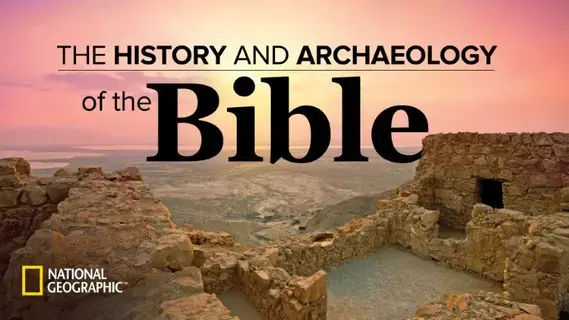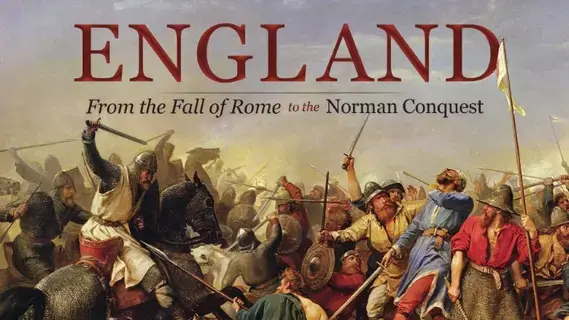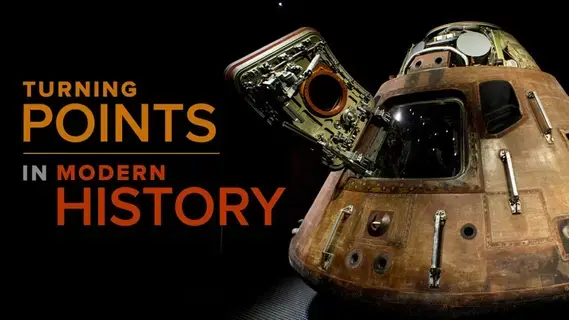Turning Points in Modern History
Self-paced course
Price
$39.99
Rating
Overview
Get a unique and rewarding view of world history by immersing yourself in the fascinating story of the discoveries, inventions, upheavals, and ideas that shaped the modern world.
What do the fall of Constantinople, the French Revolution, the Transcontinental Railroad, and the invention of the Internet all have in common? If any one of these turning points had not occurred, or had occurred differently, the trajectory of modern history—and even your life—would have been dramatically altered.
Each event and innovation sparked a profound change in how entire societies viewed the world while signaling the dawn of a new political, economic, or cultural and social reality. Being aware of these turning points is critically important—but it's even more essential to comprehend the complexity of their causes and effects if you want to fully grasp how we arrived in the here and now. Only by understanding how these and other landmark moments and movements transformed our world and continue to impact it today, and by studying the creative ways humankind has found to adapt, can we get at the heart of what it truly means to be "modern."
Turning Points in Modern History takes you on a far-reaching journey around the globe—from China to the Americas to New Zealand—to shed light on how two dozen of the top discoveries, inventions, political upheavals, and ideas since 1400 have shaped the modern world. Taught by award-winning history professor Vejas Gabriel Liulevicius of the University of Tennessee, Knoxville, these 24 thought-provoking lectures tell the amazing story of how life as we know it developed—at times advancing in one brilliant instant and at other times, in painstaking degrees.
Starting in the early 15th century and culminating in the age of social media, you'll encounter astounding threads that weave through the centuries, joining these turning points in ways that may come as a revelation. You'll also witness turning points with repercussions we can only speculate about because they are still very much in the process of turning.
What It Means to Be Modern
So what is meant by "modern"? As opposed to ancient or premodern, modernity involves a mindset that stresses novelty, breaks with the past, and recognizes change.
In exploring these turning points, you'll see as the attributes of modernity and progress recur again and again, including
- the growth of technology;
- the autonomy of the individual;
- reliance on experimentation and science over the dictates of tradition;
- new concepts of popular sovereignty and equality; and
- interconnectedness on an increasingly global scale.
Professor Liulevicius doesn't merely recount the greatest events of history, but rather has carefully selected true catalysts in provoking changes in worldview. Whether you're covering a turning point concerning
- technological change, like the invention of the airplane, motion pictures, or the atomic bomb;
- political history, such as the establishment of sovereign nation-states; or
- social transformation, as in the abolitionist movement or the recognition of women's right to vote,
you'll focus on the impact the event had on its contemporaries and their hopes and fears regarding its effects. And you will see, in spite of the shock of the "new," society's remarkable ability to adapt.
A Unique Understanding of Our Shared Past
Some of the events presented in Turning Points in Modern History, including the discovery of the New World and the fall of the Berlin Wall, will immediately resonate as watershed moments. The global significance of other pivotal events may only become apparent through the professor's guidance, such as the publication of the Enlightenment-era Encyclopédie and the Russo-Japanese War—which has been historically overshadowed by the two world wars that followed.
Whether the events are familiar or surprising, you'll encounter a wealth of eye-opening insights throughout.
- The voyages of Christopher Columbus: Despite what you may have learned in school, almost no educated European thought the world was flat in Columbus's day.
- The printing press: Gutenberg's machine played a major role in launching the Protestant Reformation. For centuries, calls for reform within the church were slow to gain acceptance or were ignored. The printing press allowed Martin Luther's message to spread and take hold instead of quickly evaporating.
- The American Revolution: Even by the time of the Boston Tea Party, few colonists were driving for independence. Most wanted the restoration of their rights as Englishmen.
- The theory of evolution: Many people actually speculated on evolution before Charles Darwin. After he introduced his ideas, the Nazis and others took the concept in directions he would not have endorsed.
While any one of these or the other turning points featured are fascinating enough to warrant an entire course, this unique format allows parallels and links to be made across centuries and continents. You'll see how the building of the Berlin Wall intersects with the space race; trace how the Anglo-Dutch trade wars led to China's subjugation; and consider whether the Westphalian system of territorial sovereignty established in 1648 still applies in cyberspace as the Internet nullifies borders.
Learn What Might Have Been
As you discover how turning points such as the discovery of penicillin and the opening of East Berlin hinged on chance, accident, and, in some cases, sheer luck, you'll realize how easily history might have played out differently.
- When Enrico Fermi and colleagues attempted to create a nuclear chain reaction in Chicago, no one knew with certainty it wouldn't run out of control. Had it gone awry, would their protection system—a technician with an axe and workers standing by with buckets of cadmium and salt—have been enough to prevent catastrophe?
- If an "American missile launch" inadvertently detected by a Soviet satellite hadn't been declared a false alarm by a Russian official, how differently might the cold war have ended?
- If the voyages of "the Chinese Columbus," Admiral Zheng He, had continued and reached the Americas, would we be speaking Mandarin today?
Having lived, studied, and traveled extensively throughout Europe, Dr. Liulevicius is uniquely qualified to draw unexpected connections between events and figures. In Turning Points in Modern History, you'll experience humanity's last 600 years as a sweeping narrative. By the final lecture, you'll see the big picture come into crystal-clear focus and possess an understanding of where we are, where we've been, and where we're headed like never before.
Similar courses
Featured articles
12 Hours
Free trial
English
Beginner


